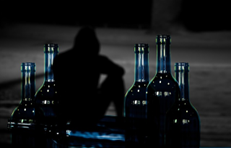Drugs and Alcohol – Parents and Carers

Most young people will come into contact with drugs in some form or another at some point in their life. Most teens will decide not to take them but If they do it can be for a variety of reasons: peer pressure, rebellion or simply out of curiosity
As a parent you play a vital role in keeping your child(ren) safe. Your own attitudes and behaviour shape your child’s views of drugs and alcohol. It’s a good idea for adults to fully understand the facts about drugs. If you talk openly to your child about drugs and the risks and effects of them, it can help them feel more confident and comfortable about making the right choices both now, and in the future.
How should I talk to my child?
Pick the right time: don’t start a conversation when your child is running out the door or going to bed. Make sure you are both feeling calm and relaxed.
Start the discussion early and keep talking so it doesn’t suddenly come up as a big thing.
Give them the facts: remind your child that, despite media stories, drinking is not the norm and most young people don’t drink or take drugs.
Avoid scare tactics: the evidence is that they don’t work.
Make time to talk regularly: try to have family meals regularly. This is a crucial chance for parents and young people to talk about all the important issues they are facing – that may include a discussion about drinking and drugs.
Avoid being confrontational: it’s important that young people don’t feel accused. Listen to young people’s views and offer your own in an honest and respectful manner so that they feel comfortable coming to you in the future
Emphasise that most young people don’t drink and don’t think it’s okay to – help your child resist pressure to try drugs in order to ‘fit in’.
Common Drugs
Over the counter drugs
For example aspirin or ibuprofen to treat general pain. These drugs can be bought without a doctor’s prescription from a pharmacist or some shops. Misusing these drugs can have harmful side effects. The instructions on how and when to use these drugs must be followed.
Prescription drugs
These drugs are controlled because they could be dangerous or addictive, so they must be used under professional guidance. You need a prescription to buy them – if you don’t these drugs are illegal. Only a pharmacist can sell them to you and only if you have a prescription from a doctor. If you take these drugs without a prescription your health could be in danger – some prescription drugs have caused death when taken without guidance.
Psychoactive drugs
These are also commonly known as “legal highs” which mimic the effects of drug such as cocaine or ecstasy. The phrase ‘legal’ is often an inaccurate name which makes some people think they are safe. One of the biggest problems with legal highs is that little, or no research has gone into their effects, especially their long-term effects and the fact that a substance may not have been banned yet does not make it safe. Substances with similar health risks to cocaine and ecstasy can increase the chances of seizures, comas, and in the worst cases, death.
The law on so-called legal highs changed on 26 May 2016. The ‘New Psychoactive Substances Act‘ came into force, making it illegal to supply any ‘legal highs’ for human consumption. The changes in the law mean it’s now an offence to sell or even give psychoactive substances to anyone for free, even to friends.
Illegal, classified drugs
These are drugs such as heroin, cocaine or cannabis. These drugs are classified as A, B or C depending on the harm they cause. For example Crack Cocaine is a Class A drug, ‘Spice’ and ‘Mephedrone’, cannabis and a large number of synthetic cannabinoids are class B drugs. Ketamine is a currently a class C drug.
Useful Links
Childline – information and advice about drugs, alcohol and smoking from the NSPCC
Talk to Frank – free confidential drugs information and advice, by phone, text or online
MentorUK – drugs and alcohol charity with advice and information for parents and carers
